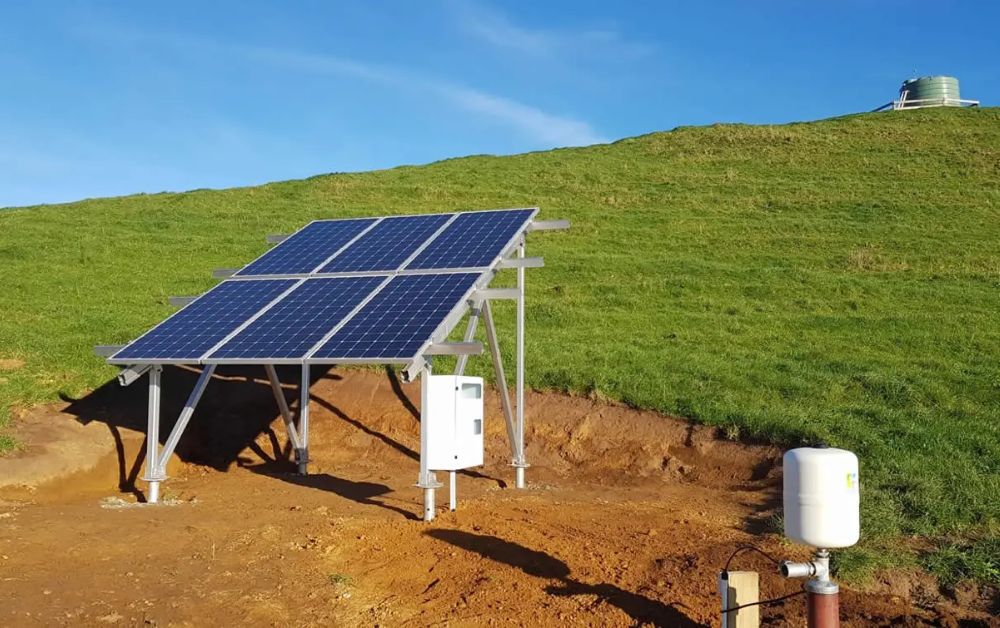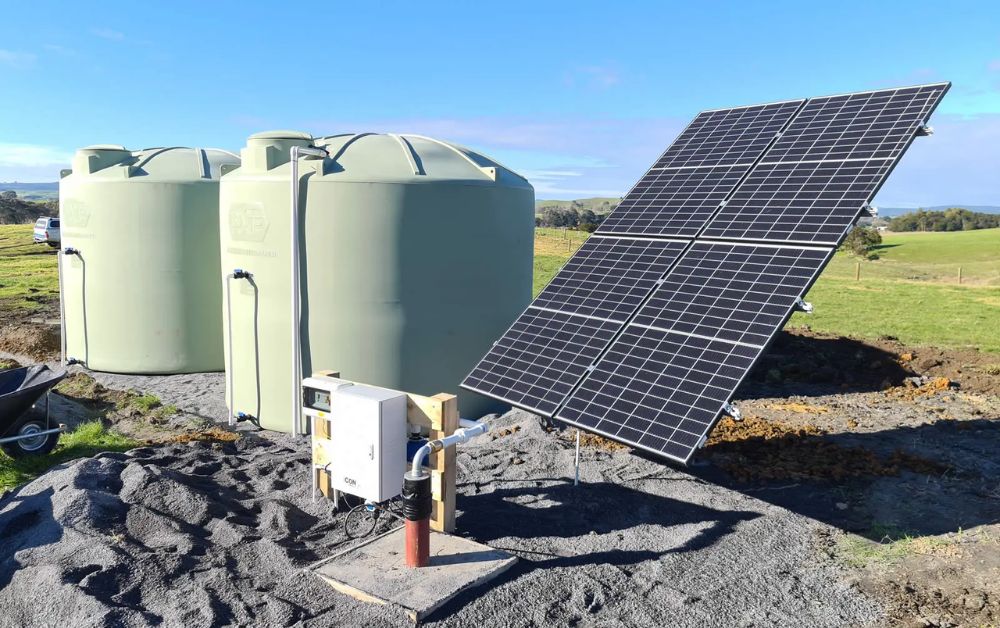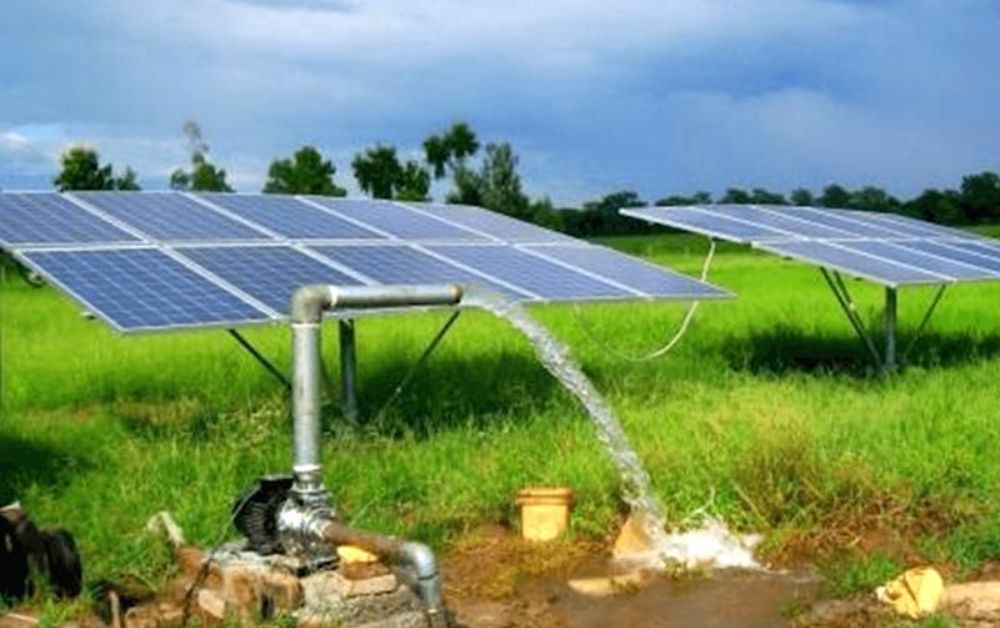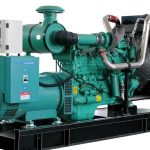Introduction
Water conservation and energy efficiency are two of the most critical issues of our time. With the increasing population of the world and climate change affecting water resources, there is a need for innovative and sustainable technologies to provide access to water while maintaining environmental equilibrium. Solar water pumping systems are one such technology. These systems emphasize using solar power to irrigate water for farming, household, and commercial use. By reducing reliance on traditional energy sources and advocating for water conservation practices, solar water pumps are revolutionizing rural development and green resource management.

Understanding Solar Water Pumps
Solar water pumps utilize photovoltaic (PV) panels to transform the sun’s light into electricity, which drives a motor to push water from wells, boreholes, rivers, or other water sources. The pumps are in two categories: surface pumps (for shallow water sources) and submersible pumps (for deeper water sources). In contrast to conventional pumps that use diesel or grid power, solar water pumps are not dependent on fossil fuels and are cost-saving and eco-friendly.
Water Conservation through Solar Water Pumping Systems
Solar water pumping system deployment is central to water conservation in several ways. First, they can be combined with precision irrigation technologies like drip or sprinkler irrigation, which provide water directly to the roots of plants and minimize water loss by far compared to flood irrigation.
Secondly, since solar water pumps usually function during the daytime, they promote more mindful water consumption. Farmers and consumers become more aware of water usage habits, frequently rescheduling irrigation to correspond with maximum sunlight hours. Not only does this guarantee maximum utilization of solar power, but it also averts over-exploitation of groundwater.
Where water is a limited resource, the capacity to manage and control water extraction effectively is essential. Solar water pumps can be fitted with intelligent controllers that regulate water supply automatically depending on real-time demand and climatic conditions. This avoids excess use, maintains water availability for extended periods, and ensures long-term water source sustainability.
Energy Efficiency and Cost Savings
One of the most significant strengths of solar water pumping systems is their energy efficiency. Energy loss, volatile costs, and maintenance issues plague conventional pumps run on diesel engines or electricity networks. Solar pumps, on the other hand, provide a clean and stable power source with low operational expenses.
After installation, solar water pumps involve minimal maintenance and no recurring fuel cost. This considerably slashes the long-run operating cost to users, especially in distant and off-grid communities. These cost savings can be revolutionary to smallholder farmers, as they can divert funds into good agricultural inputs or increase the extent of land farmed.
Additionally, the effectiveness of solar-powered systems leads to a reduction of greenhouse gas emissions. One solar water pump can save tens of tons of CO₂ every year by substituting diesel-powered pumps, helping in climate change mitigation while increasing water supply reliability.
Enhancing Agricultural Productivity and Livelihoods
The effect of solar water pumping systems goes beyond water savings and energy efficiency. The systems can directly increase agricultural production by offering a constant and uninterrupted water supply, independent of weather or power grid availability. This implies that farmers can grow crops year-round, including during periods of drought, thereby leading to enhanced harvests and better food security.
Solar pumps also minimize the physical workload on people, especially women and children in rural communities, who may have to collect water from faraway sources. By locating water closer and making it easier to access, these systems release time for education, income activities, or community participation.
The scalability of solar water pumps also translates into their ability to fund community-based projects like cooperative agriculture or collective irrigation programs. This encourages cooperation, enhances resource utilization, and promotes equitable rural development.
Challenges and Opportunities
While they have many advantages, some challenges are attached to the widespread use of solar water pumping systems. The upfront capital expense may be a stumbling block, particularly for poor communities. While long-term savings are high, initial financing is not always readily accessible. Governments, NGOs, and development organizations must hence take the lead in providing subsidies, grants, or low-interest loans to stimulate adoption.
Also, technical knowledge and awareness are still scarce in most areas. To achieve maximum benefits, users must be well-trained in system operation, maintenance, and water management practices. Local capacity building and continuous support efforts are critical to ensuring the sustainability of these systems.
On the opportunity side, converging solar pumps with IoT (Internet of Things) and mobile technology opens up thrilling possibilities. Remote monitoring, predictive maintenance, and data-driven irrigation planning are all new trends that improve system performance and user convenience. With further advancements in solar panel and battery technologies, the efficiency and cost-effectiveness of solar water pumping systems are likely to improve even more.

Conclusion
In summary, solar water pumping systems are critical in promoting water conservation and efficiency in many sectors, notably agriculture. The systems enhance environmental objectives, economic growth, and social welfare by providing low-cost, sustainable, and reliable means of water access. Their combination with advanced irrigation methods and intelligent technologies further enhances their contribution. Although there are challenges, the advantages of solar water pumps significantly outweigh the disadvantages and are an essential part of global sustainable water and energy solutions.
As the world continues to face water scarcity and energy issues, investing in and increasing the utilization of solar water pumps provides a pragmatic, scalable, and future-proof solution.


